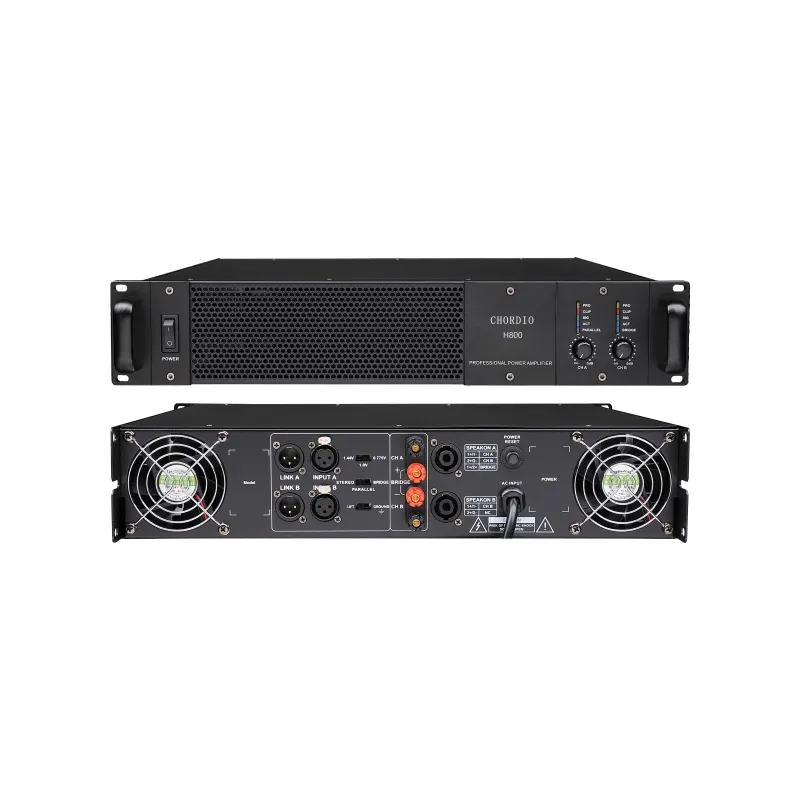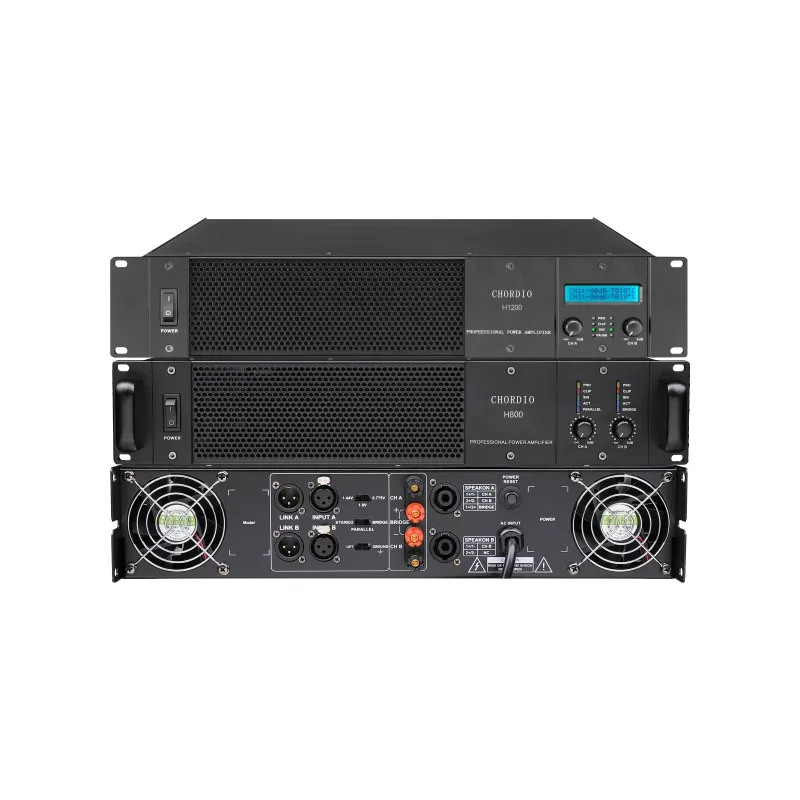Exploring the New Landscape of Live Audio Technology
As live performance and broadcasting standards continue to evolve, the expectations for PA Professional Audio Systems have significantly risen. Whether it's a large-scale concert or a mid-sized conference venue, delivering crystal-clear sound is no longer a luxury—it's a necessity. This has driven manufacturers and sound engineers to innovate rapidly. In 2025, the PA Professional Audio Systems industry is poised for another transformative leap, with advancements not only in hardware but also in integration and control technologies.
Emphasis on Wireless and Networked Audio
Rise of Wireless Audio Infrastructure
One of the most noticeable developments in PA Professional Audio Systems is the widespread adoption of wireless audio technologies. Modern venues, especially those with multi-purpose configurations, benefit from the flexibility and ease of deployment that wireless systems offer. In 2025, the combination of Wi-Fi 6 and newer mesh networking protocols ensures higher bandwidth and minimal latency for wireless mics and monitors. This not only simplifies setup but also enhances signal stability, even in dense RF environments.
Network-Based System Control
Audio-over-IP has firmly established its place in PA Professional Audio Systems, and 2025 sees it becoming even more integral. Digital consoles can now manage routing, EQ, and device control remotely via secure network connections. This centralized management is ideal for large venues, houses of worship, and campus-wide event setups. Technicians can now adjust gain levels or switch speaker zones from a mobile tablet, making live event management more responsive and efficient.
Integration with AI and Automation
Smart Feedback Suppression and Auto-Mixing
The role of artificial intelligence in PA Professional Audio Systems is expanding. Automated features such as feedback suppression and real-time EQ optimization are being refined to minimize human intervention. For example, AI-powered auto-mixers can detect speech patterns and environmental noise, adjusting levels dynamically without compromising clarity or tone.
Predictive Maintenance and Monitoring
With predictive diagnostics built into modern PA Professional Audio Systems, technicians can receive alerts before issues like overheating, connection loss, or signal distortion affect the event. In 2025, more systems include built-in sensors that feed performance metrics into centralized monitoring dashboards. This shift reduces downtime and increases system longevity.
User-Centric Design and Portability
Modular System Design
The move towards modular PA Professional Audio Systems design allows users to scale systems according to their event size or venue. Portable column arrays with integrated mixers are gaining popularity for their sleek footprint and ease of use. In 2025, more systems are adopting plug-and-play components that minimize setup time and eliminate the need for multiple technicians.
Lightweight, Road-Ready Equipment
Material engineering advancements are resulting in lighter yet more durable components. PA Professional Audio Systems are becoming increasingly compact without sacrificing sound output. Transporting systems for outdoor festivals, small gatherings, or rental operations is becoming less of a logistical burden, opening new opportunities for mobile DJs and event planners.
Enhanced Audio Quality and DSP
High-Resolution Audio Support
Support for 24-bit/96kHz audio has become standard in high-end PA Professional Audio Systems. This brings concert-grade clarity to even smaller venues. The fidelity improvements are particularly noticeable in speech intelligibility and dynamic range, ensuring the audience receives the full spectrum of sound.
Advanced DSP Algorithms
Modern digital signal processing units now offer more than just compression and reverb. In 2025, PA Professional Audio Systems feature phase alignment, room modeling, and dynamic EQ adjustments that respond to crowd density and venue acoustics. These smart algorithms improve consistency and reduce the need for manual tuning during performances.

Sustainability and Energy Efficiency
Eco-Friendly Power Management
The push for sustainable technology extends to PA Professional Audio Systems. Manufacturers are integrating more efficient power supplies, sleep modes, and low-energy standby features into their designs. Solar-powered options for outdoor events are also gaining traction, allowing for green energy operation without sacrificing performance.
Durable, Recyclable Materials
The focus on sustainability is also reflected in chassis and enclosure materials. Recyclable aluminum and eco-polymers are replacing traditional plastics and metals. This reduces the environmental footprint of producing and disposing of PA Professional Audio Systems without affecting sound quality or durability.
Application-Specific Solutions
PA Systems for Houses of Worship
Many houses of worship now rely on PA Professional Audio Systems tailored to their unique architectural and acoustic challenges. In 2025, these setups include directional speakers and adaptive EQ modules that accommodate domes, arches, and reflective surfaces. Seamless integration with live-streaming tools also supports hybrid congregational participation.
Compact Systems for Educational Use
Education institutions are increasingly using PA Professional Audio Systems in classrooms, lecture halls, and multi-purpose rooms. Compact, wall-mounted systems with integrated microphones and Bluetooth functionality cater to hybrid teaching models. The systems of 2025 prioritize simplicity and interconnectivity for fast deployment.
Future Outlook and Industry Adaptation
Customization and Brand Ecosystems
Leading brands are now offering fully customizable PA Professional Audio Systems that integrate seamlessly with lighting, video, and control software. These brand ecosystems streamline operations and ensure compatibility. In 2025, expect to see more companies offering modular system kits that adapt to evolving event needs.
Training and Accessibility
With growing system complexity, training is becoming a core aspect of PA Professional Audio Systems deployment. Manufacturers are investing in user education through online platforms, video tutorials, and AR-based setup guides. This enables even non-professionals to manage complex systems with confidence.
FAQ
What is the most important trend in PA Professional Audio Systems for 2025?
The shift toward wireless and AI-integrated systems is a major trend, offering greater flexibility, automation, and ease of use for diverse environments.
How does AI improve PA Professional Audio Systems?
AI enables features like automatic EQ, feedback suppression, and predictive maintenance, which streamline operations and reduce the need for real-time manual adjustments.
Are PA Professional Audio Systems becoming more eco-friendly?
Yes, 2025 systems are embracing sustainability through energy-efficient components and recyclable materials, supporting both performance and environmental responsibility.
Can beginners manage PA Professional Audio Systems effectively?
Modern systems are increasingly user-friendly, with intuitive interfaces, online training resources, and mobile-based control apps making them accessible even to non-experts.
Table of Contents
- Exploring the New Landscape of Live Audio Technology
- Emphasis on Wireless and Networked Audio
- Integration with AI and Automation
- User-Centric Design and Portability
- Enhanced Audio Quality and DSP
- Sustainability and Energy Efficiency
- Application-Specific Solutions
- Future Outlook and Industry Adaptation
- FAQ

